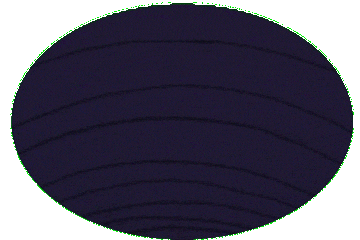Glenda Jackson
Glenda May Jackson (9 May 1936 – 15 June 2023) was an English actress and politician. Over the course of her distinguished career she received numerous accolades including two Academy Awards, three Emmy Awards and a Tony Award, making her one of the few performers to achieve the "Triple Crown of Acting." Her other accolades include two BAFTA Awards and a Golden Globe Award. A member of the Labour Party, she served continuously as a Member of Parliament (MP) for 23 years, first for Hampstead and Highgate from 1992 to 2010, and then, following boundary changes, for Hampstead and Kilburn from 2010 to 2015. Jackson won the Academy Award for Best Actress twice, for the romance films Women in Love (1969) and A Touch of Class (1973), but she did not appear in person to collect either due to work commitments. She also won the BAFTA Award for Best Actress in a Leading Role for Sunday Bloody Sunday (1971). Her other notable films include Mary, Queen of Scots (1971), Hedda (1975), The Incredible Sarah (1976), House Calls (1978), Stevie (1978) and Hopscotch (1980). She won two Primetime Emmy Awards for her portrayal of Queen Elizabeth I in the BBC series Elizabeth R (1971). She received both the BAFTA Award and International Emmy Award for her performance in Elizabeth Is Missing (2019). She studied at the Royal Academy of Dramatic Art (RADA) and made her Broadway theatre debut in Marat/Sade (1966). She received five Laurence Olivier Award nominations for her West End theatre roles in Stevie (1977), Antony and Cleopatra (1979), Rose (1980), Strange Interlude (1984) and King Lear (2016), the last being her first role after a 25-year absence from acting, which she reprised on Broadway in 2019. On Broadway, she won the Tony Award for Best Actress in a Play for her role in the revival of Edward Albee's Three Tall Women (2018) and received nominations for her work in Marat/Sade (1966), Rose (1981), Strange Interlude (1985), and Macbeth (1988). Jackson transitioned her career to politics from 1992 to 2015, and was elected MP for Hampstead and Highgate at the 1992 general election. She was a junior transport minister from 1997 to 1999 during the first Blair ministry; she later became critical of Tony Blair. After constituency boundary changes, she represented Hampstead and Kilburn from 2010. At the 2010 general election, her majority of 42 votes, confirmed after a recount, was the narrowest margin of victory in Great Britain. Jackson stood down at the 2015 general election and returned to acting.
This article uses material from the Wikipedia article "Glenda Jackson", which is released under the Creative Commons Attribution-Share-Alike License 3.0.
Connection Chains
- From Harry Nilsson to Glenda Jackson in 12 Steps
- From Randy Newman to Glenda Jackson in 12 Steps
- From Steve Dudas to Glenda Jackson in 10 Steps
- From Richard Dewitte to Glenda Jackson in 10 Steps
- From Stop and Take the Time to Smell the Roses to Glenda Jackson in 9 Steps
- From Shuffle Off to Buffalo to Glenda Jackson in 9 Steps
- From David Sontag to Glenda Jackson in 9 Steps
- From Aimee Mann to Glenda Jackson in 9 Steps
- From Ian Anderson to Glenda Jackson in 9 Steps
- From Son of Dracula to Glenda Jackson in 9 Steps
- From These Are the Brave to Glenda Jackson in 8 Steps
- From Good Old Desk to Glenda Jackson in 8 Steps
- From E. R. Goetz to Glenda Jackson in 8 Steps
- From Bongo Rock to Glenda Jackson in 8 Steps
- From Bob Einstein to Glenda Jackson in 8 Steps
- From Jim Keltner to Glenda Jackson in 7 Steps
- From Jesse Lee Kincaid to Glenda Jackson in 7 Steps
- From Milton Ager to Glenda Jackson in 7 Steps
- From Black Molasses Music to Glenda Jackson in 7 Steps
- From Only You to Glenda Jackson in 7 Steps
- From Keith Reid to Glenda Jackson in 7 Steps
- From Making Mr. Right to Glenda Jackson in 7 Steps
- From Me Myself and I to Glenda Jackson in 7 Steps
- From Open Your Window to Glenda Jackson in 6 Steps
- From Don Calfa to Glenda Jackson in 6 Steps
- From George Segal to Glenda Jackson in 6 Steps












